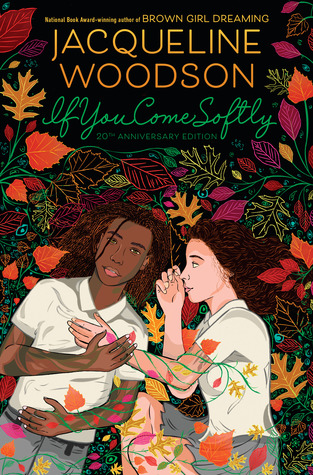If You Come Softly

If You Come Softly, by Jacqueline Woodson, is a story grounded in the tradition of Romeo and Juliet. Two young people from different groups love each other despite opposition from their different worlds. While Romeo and Juliet was famously about two lovers from feuding families, the main obstacle in If You Come Softly is subtler, but no less dangerous.

In the novel, Jeremiah is black and Ellie is white. They rapidly fall in love, but find interracial relationships come with their own set of hurdles. The book is about the quiet racism and prejudice found in sidelong glances on the street or harmful assumptions from peers or teachers. Casual prejudice forms a backdrop for Jeremiah and Ellie's relationship, which they are determined to weather. However, the discrimination eventually culminates in larger tragedy that tears lives apart.
If You Come Softly is significant because it shows the harmful effects of prejudice. Being black, Jeremiah can never forget his race, and we are continually shown throughout the novel how small acts of prejudice affect him. People frown at his relationship with Ellie, teachers assume he is behind the other students academically, and even his girlfriend hesitates to introduce him to her family. Ellie, on the other hand, initially is unaware of the prejudice in her community and family. As she draws closer to Jeremiah, she sees how he is affected, and this growing awareness leads her to make hard choices.
Woodson's novel is an excellent text for teaching about racism and prejudice for middle school or high school students. As racism continues to lurk in our social media feeds, in our communities, and on the world stage, students can greatly benefit from seeing the effects of prejudice in this book. Hopefully through careful thought and discussion, students can better connect the characters' experiences to their own communities, an important first step for creating change.
